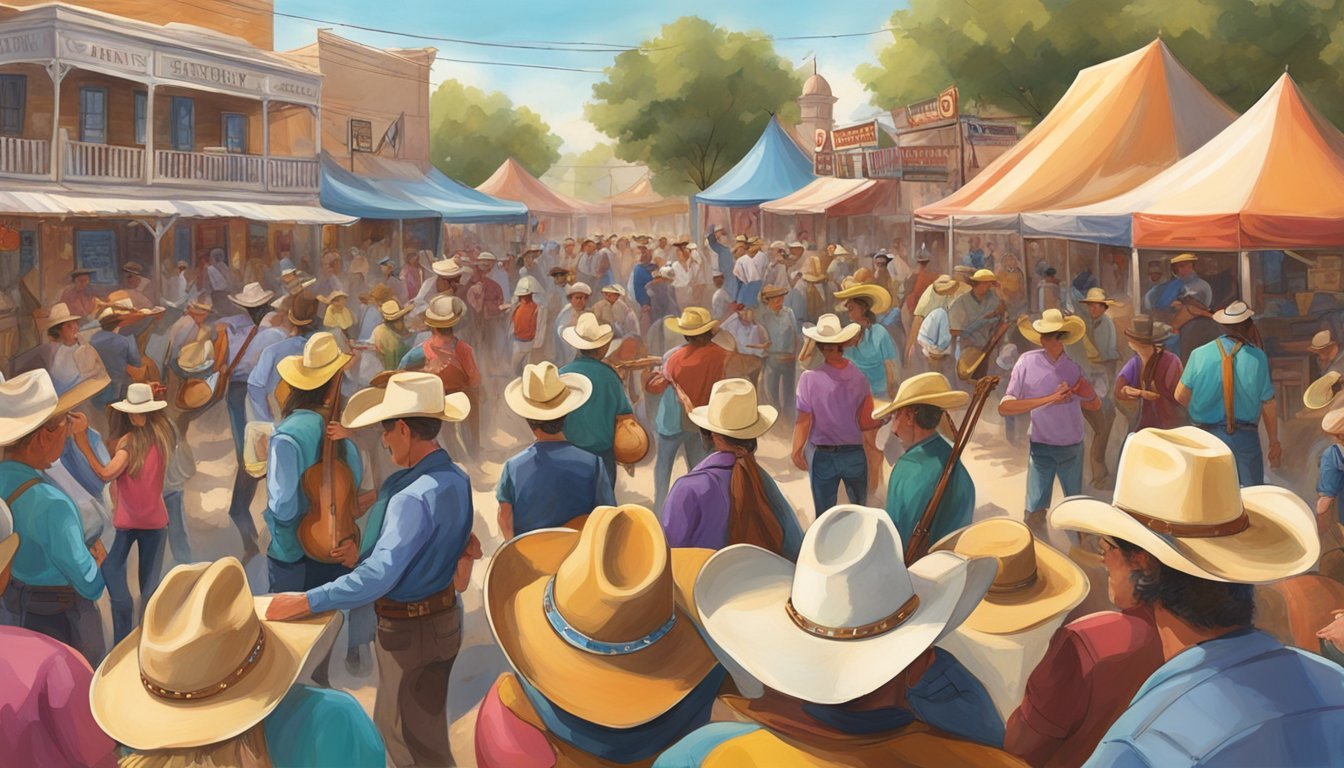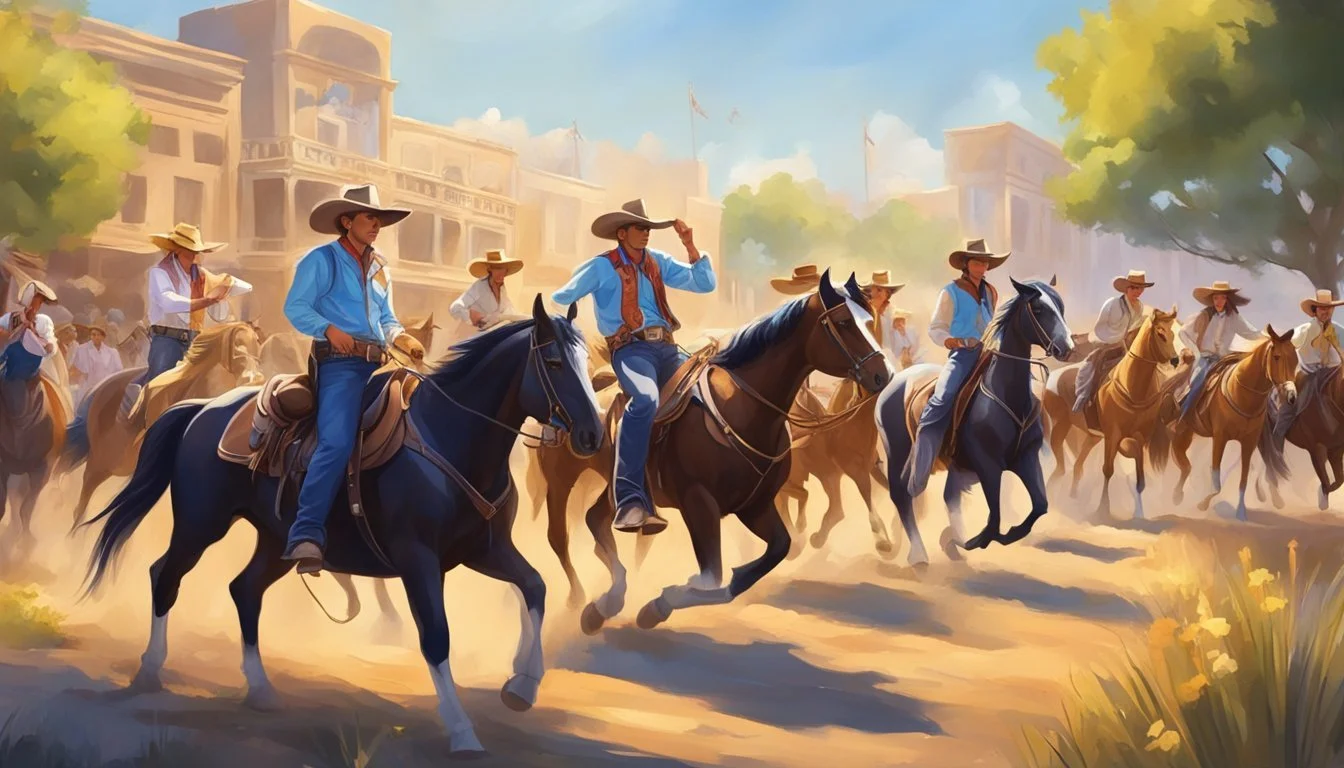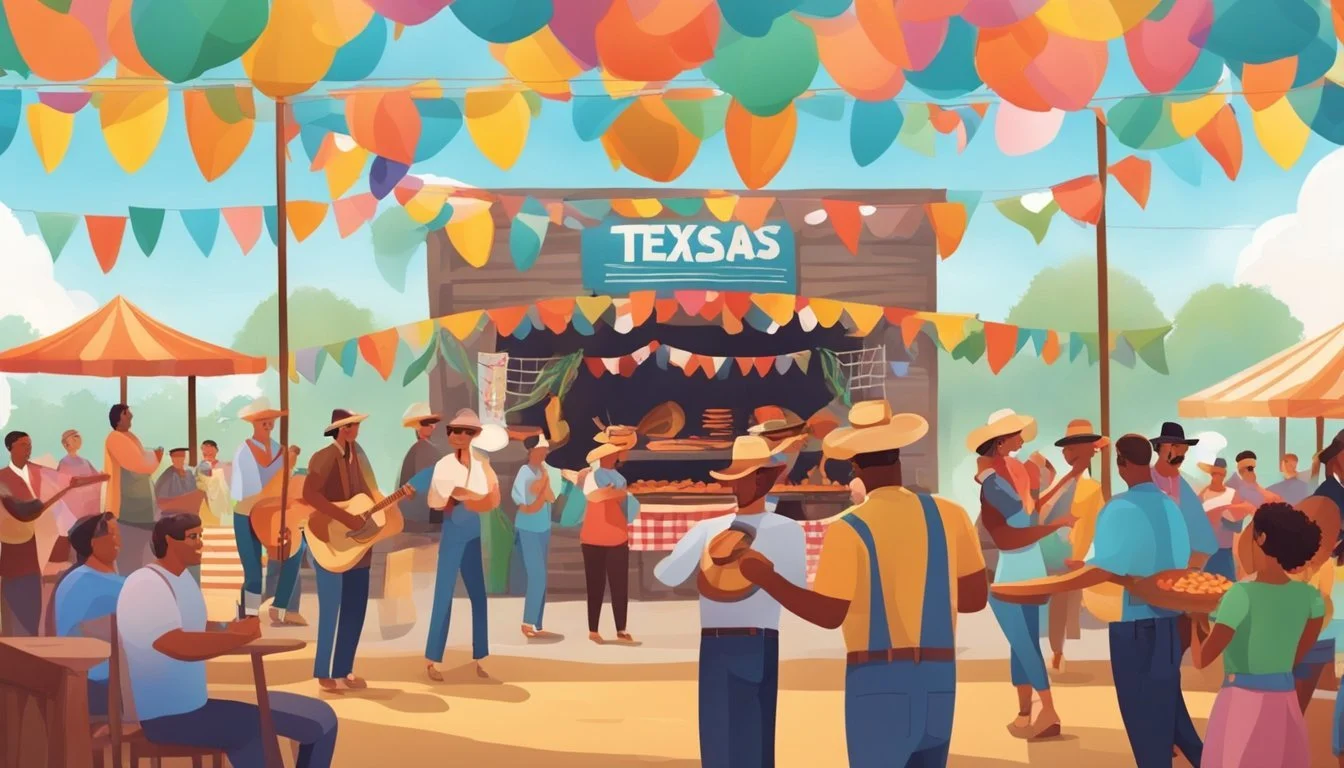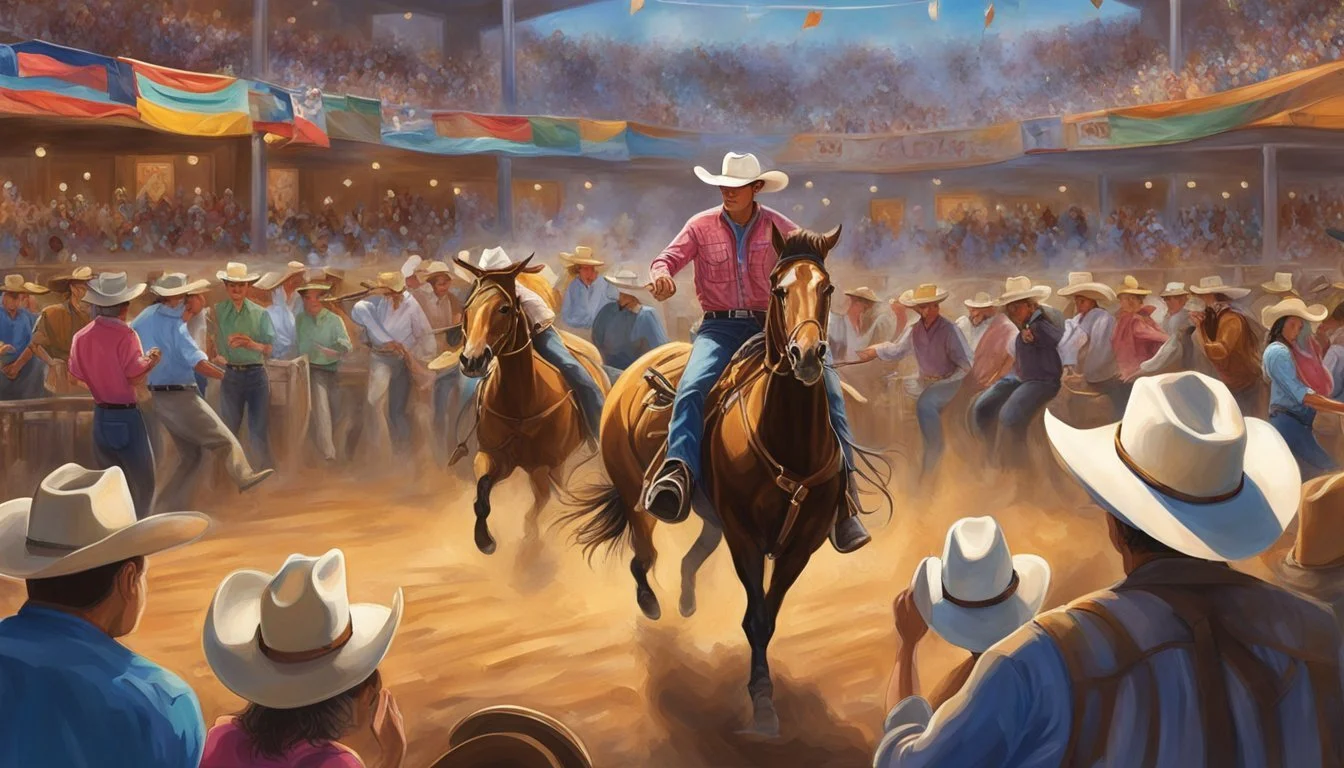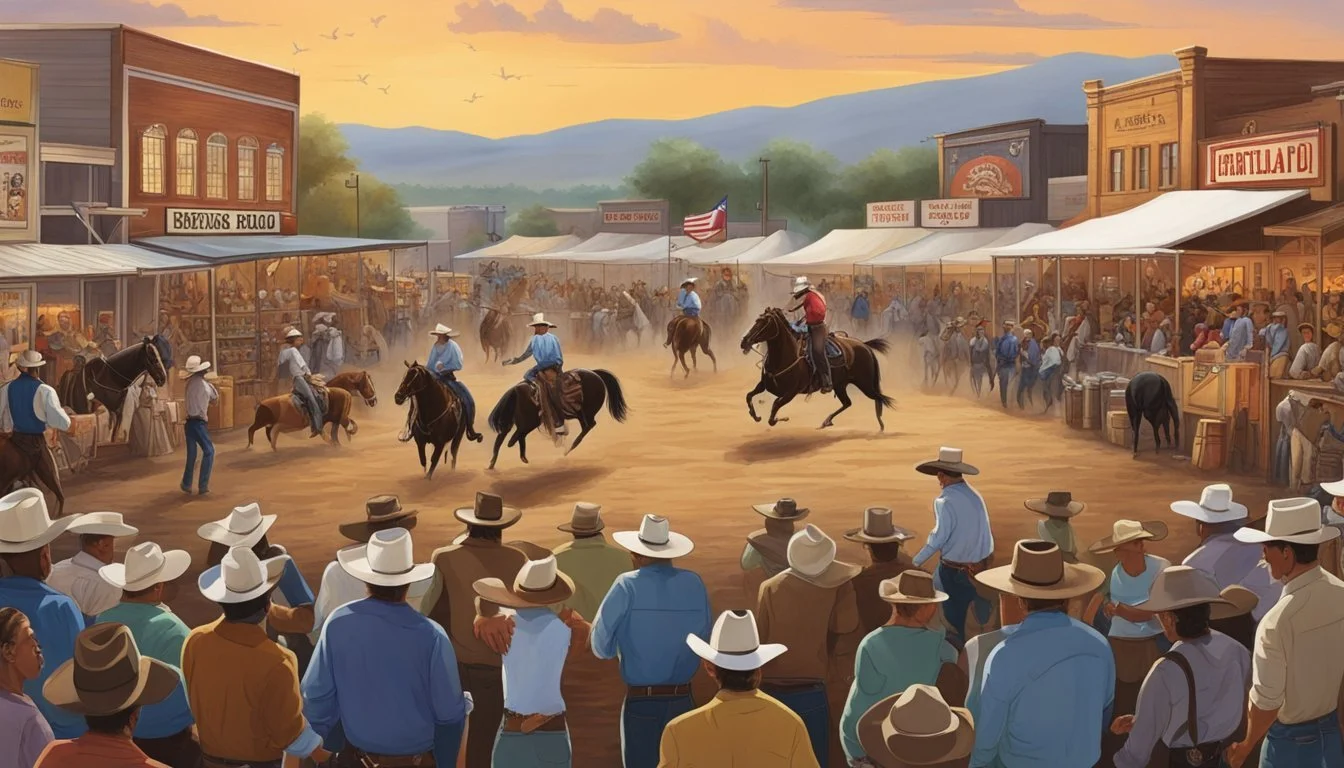The History and Culture of Texas Western Festivals
A Deep Dive into Tradition and Celebration
Texas boasts a rich tapestry of customs and ceremonies, with western festivals standing as a vibrant testament to the region's historical and cultural heritage. These events, deeply rooted in the cowboy culture, serve as a celebration of a way of life that once dominated the Lone Star State. They bring together the traditions of the vaqueros—the original cowboys of Spanish descent—and the influences that shaped the state through the centuries. The festivals are more than entertainment; they are living history, encapsulating everything from music and cuisine to the traditional skills of horsemanship and cattle herding.
At these gatherings, the legacy of Texas is told through a blend of sights, sounds, and aromas, capturing the essence of its diverse culture. Western swing music, for instance, is central to these festivities, embodying a unique Texas-based sound that extends far beyond the region's borders. Held annually, the Texas Western Swing Hall of Fame, for example, showcases this genre, echoing the rhythms that once echoed through Texan dance halls.
Through festivals and celebrations, the spirit of Texas' past is preserved and passed on to new generations. Historical associations and communities are devoted to the restoration of 19th-century architecture and the re-creation of the frontier lifestyle. These events act as a bridge connecting the state's storied past to the dynamic present, ensuring that Texas’ cultural identity—shaped by cowboy ethics, Mexican American arts, and an unwavering sense of pride—continues to thrive.
Historical Roots of Texas Western Festivals
Texas Western Festivals are deeply rooted in the state's rich history and blend of cultural influences. These events showcase a legacy of cowboy culture, Spanish and Mexican traditions, with a spirit born from the Texas Revolution.
The Emergence of Cowboy Culture
The iconic image of the Texas cowboy originated in the mid-19th century as cattle herding became a significant industry. Cowboys, originally known as vaqueros in Mexican culture, were instrumental in developing the ranching traditions that became synonymous with Texas. The demands of cattle drives fostered skills in roping, riding, and ranch management – elements that are celebrated in today's Western festivals.
Influence of Spanish and Mexican Traditions
Spanish explorers and Mexican settlers introduced horse riding and livestock management to Texas. Mexican traditions, particularly those linked to the vaquero, evolved into the cowboy culture celebrated throughout Texas today. Festivals often feature mariachi music, charreadas (rodeos), and folk dances, highlighting the enduring influence of these early cultural exchanges.
Texas Revolution and Cultural Formation
The Texas Revolution (1835–1836) was pivotal in forging Texas' unique identity. Following independence, Texas culture began to distinctively meld influences from American, Spanish, and Mexican traditions. Festivals not only commemorate the state's struggle for independence but also celebrate the resulting eclectic culture through music, dance, and historical reenactments.
These festivals offer a glimpse into a way of life that has been carefully preserved and passed down through generations, ensuring that the history and cultural heritage of Texas remain vibrant and accessible.
Cultural Significance of Texas Festivals
Texas festivals are a vibrant expression of the state's identity and cultural heritage, where the spirit of community and a rich tapestry of cultural diversity are displayed.
Texas Identity and Spirit
Texas festivals represent the robust spirit and strong identity of the Lone Star State. Events such as Fiesta San Antonio commemorate historical events through celebrations that captivate both locals and visitors. These community gatherings are a testament to Texan pride and the communal spirit that defines the state's character.
Fusion of Diverse Cultures
The cultural landscape of Texas festivals is a blend of Native American, Spanish, Mexican, Asian, and Southern influences, creating a unique cultural fusion. This diversity is showcased through music, food, and crafts, reflecting the state's ability to integrate various cultural elements into a cohesive and celebrated Texan culture.
Role in Preserving Heritage
Festivals play a critical role in preserving Texas’s cultural heritage. They are opportunities for the transmission of traditions from one generation to the next. Folk festivals, in particular, are venues where the state's historical narrative and the contributions of different ethnic groups are honored and remembered through storytelling and cultural displays.
Iconic Festivals and Events
Texas is home to several key festivals and events that celebrate its unique Western heritage. These annual gatherings are central to Texan culture and attract visitors from around the world to experience rodeos, live entertainment, and traditional cuisine.
Houston Livestock Show and Rodeo
Location: Houston
Event Highlights:
World's largest livestock exhibition and rodeo
Entertainment includes top music performers, livestock competitions, and family-friendly activities
Timeframe: Typically takes place in March
One of the most prestigious of its kind, the Houston Livestock Show and Rodeo was first held in 1932. This event is not only a celebration of Western culture but also serves an important role in educating the public about agriculture and providing scholarships.
Fiesta San Antonio
Location: San Antonio
Event Highlights:
Over 100 events including parades, music, and food festivals
Commemorates the Battle of the Alamo and the Battle of San Jacinto
Timeframe: Held annually in April
Fiesta San Antonio began in 1891 as a way to honor Texas heroes and has grown into an 11-day extravaganza. The festival supports various charitable causes and offers a diverse range of activities, from traditional Mexican music to modern-day attractions.
State Fair of Texas
Location: Dallas
Event Highlights:
Famous for Big Tex, the 55-foot tall cowboy statue
Features auto shows, livestock competitions, and a football game between Oklahoma and Texas
Timeframe: Runs for 24 consecutive days starting in late September
Originating in 1886, the State Fair of Texas is an annual celebration of Texas culture, industry, and technology. It boasts an impressive array of activities including fairground rides, games, and educational exhibits. This fair not only honors the agricultural roots of Texas but also showcases the best of Texan creativity and community spirit.
Traditional Elements of Western Festivals
Western festivals in Texas are a reflection of the state's rich heritage and cultural history. These events encapsulate the essence of cowboy life, ranching traditions, and the distinct music and dance styles of the region.
Rodeo Competitions and Skills
Rodeos are the cornerstone of Western festivals, showcasing a variety of cowboy skills and competitions. Bull Riding, a high-adrenaline event, exemplifies the daring and courage of rodeo participants. Competitors aim to stay mounted on a bucking bull for as long as possible. Events such as tie-down roping, barrel racing, and steer wrestling also highlight the prowess and agility required in ranch life.
Cowboy and Ranching Activities
Beyond rodeo competitions, festivals deeply integrate activities reflecting day-to-day ranching operations. Demonstrations of cattle herding and horseback riding exhibit the symbiotic relationship between cowboys and their equine partners. Additionally, practical skills competitions may include lassoing and other roping techniques, essential to the tasks of cattle ranching.
Music and Dance Heritage
Country Music: An integral part of Western festivals, country music resonates with themes of love, hardship, and the cowboy lifestyle. Live performances celebrate this genre's evolution and its influence on Texas culture.
Dance: Texas Western festivals often include dance halls where attendees can enjoy traditional dances like the two-step and square dancing to the rhythm of Western Swing and other regional music styles. Dancing reaffirms community bonds and continues long-standing traditions.
In these festivals, the synthesis of rodeo sports, ranching life, and musical festivities perpetuates Texas’ enduring Western legacy.
Culinary Traditions and Texas Cuisine
Texas cuisine, a flavorful meld of traditions, is a testament to the state's diverse cultural heritage, offering a taste of history through its beloved dishes such as barbecue (What wine goes well with barbecue?) and Tex-Mex.
Barbecue and Tex-Mex Influences
Texas is synonymous with barbecue, particularly beef barbecue. The cooking method of slow-smoking meat over wood, a technique perfected in Texas, highlights the importance of beef in the state's culinary identity. Central Texas barbecue, with its emphasis on high-quality meat smoked to perfection without heavy reliance on sauces, stands out for its purity of flavor.
Tex-Mex, a term derived from the combination of "Texan" and "Mexican," describes a regional cuisine that blends Texan and Mexican culinary traditions. It's characterized by bold flavors and hearty dishes, such as enchiladas, fajitas, and nachos, often incorporating generous servings of cheese, beans, and beef. Ingredients like cumin, chili peppers, and corn are staples in Tex-Mex recipes, showcasing the fusion between the bordering cuisines.
Food Festivals and Cooking Competitions
Food festivals and cooking competitions are a vital part of celebrating Texas' culinary delights. These events not only pay homage to traditional cooking methods but also ignite contemporary creativity among chefs. Notably, the Texas Barbecue Festival celebrates the art of barbecue, attracting competitors and enthusiasts alike to showcase their grilling skills and savor the variety of flavors infused in smoked meats.
Tex-Mex cuisine also has its own festivals, like the Houston Tex-Mex Food Fest, which honors the fusion of cultures and introduces new variations to classic dishes. These gastronomic gatherings provide an immersive experience into Texas' culinary trends and reinforce the enduring appreciation for Texan food culture.
Arts and Crafts of the Lone Star State
Texas festivals not only celebrate the state's rich and diverse culture but also showcase its intrinsic arts and crafts. From renowned art exhibits to traditional storytelling, Texas holds a treasure trove of cultural heritage.
Art Exhibits and Craftsmanship
In Texas, art exhibits serve as a vital platform where both local and international artists display their pieces. These gatherings are full of vibrant artworks that range from contemporary sculptures to classic paintings, often highlighting the cultural fusion prevalent in Texas. Craftsmanship is equally celebrated, with festivals often featuring handmade crafts that incorporate Mexican American folk art traditions. Visitors can expect to see a diverse canvas of:
Pottery: Distinctive earthenware with intricate designs.
Textiles: Fine quality quilts and woven garments showcasing Texan motifs.
Metalwork: Decorative pieces often drawing from Texas' ranching heritage.
Glasswork: Stained glass creations influenced by a mix of modern and historical themes.
Literature and Storytelling Traditions
Literature holds a special place in Texas culture, with storytelling traditions that date back centuries. Many festivals include dedicated spaces where authors read excerpts from their works, celebrating Texas' literary contribution:
Historical Accounts: Works that narrate Texas' tumultuous and diverse history.
Fiction: Stories that capture the essence of Texan life, from rural tales to urban sagas.
Poetry: Poetic expressions that embody the state's geography and spirit.
The art of storytelling is elevated during these events, where oral traditions pay homage to Texas' roots, often blending Native American histories with tales of the frontier and cowboy legends.
The Influence of Texas Festivals on Popular Culture
Texas festivals play a pivotal role in shaping and promoting the state's cultural identity, projecting an image of Texas that resonates globally. They celebrate Texas's unique blend of musical heritage and Western tradition, attracting visitors worldwide and elevating the state's status in popular culture.
Music Festivals and Live Performances
Texas is renowned for its vibrant music scene, with festivals like Austin City Limits Music Festival and South by Southwest (SXSW) showcasing a diverse array of talent. These events have not only bolstered the reputation of Texas as the Live Music Capital but they have also shaped musical tastes and trends beyond the state's borders. The Austin City Limits Music Festival features eight stages and over 130 bands, drawing tourists from all corners to experience live performances in a city known for supporting musicians.
Key Festivals:
Austin City Limits Music Festival
South by Southwest (SXSW)
Impact on Music Industry:
Artist exposure and discovery
Trendsetting in music genres
Live recording sessions and album releases
Music festivals in Texas have played a crucial role in launching the careers of numerous artists and have become a staple in the global music calendar, influencing the industry at large.
Festivals as Tourist Attractions
The allure of Texas festivals extends beyond music and into the fabric of its Western culture, making them significant tourist attractions. Events like rodeos and cultural celebrations draw visitors keen on experiencing the vibrant festivities Texas has to offer. The economic impact is considerable, as tourists spend on accommodation, dining, and local businesses, bolstering the state's economy.
Tourist Draw:
Unique cultural experiences
Authentic Western ambiance
Economic Contributions:
Boost to local businesses
Increased hotel and service industry revenues
By promoting the Western heritage and showcasing the eclectic mix of cultures, Texas festivals contribute to the state's global image and enduring allure, reinforcing its position as a cherished destination for cultural tourism.
Western Festivals and Texas Economy
Western festivals in Texas are a significant contributor to the state's economy, presenting diverse opportunities for revenue generation. These festivities not only bolster tourism but also invigorate local businesses through sponsorships and commercial ventures.
Economic Impact and Opportunities
Western festivals in Texas serve as a magnet for tourists, who inject capital into the economy through lodging, dining, and retail. Events such as rodeos, music festivals, and cultural celebrations reflect the state's rich heritage, drawing visitors from across the country and internationally. Ranches play a key role in these festivals, offering authentic experiences that encapsulate the cowboy lifestyle. Cattle ranches transition into festival venues, providing a unique backdrop for events and showcasing the ranching culture central to Texas society.
Tourists are pivotal to the economic landscape during these festivals, as they:
Increase demand for accommodations and services.
Contribute to the growth of local businesses through purchases and patronage.
Support employment, both directly within the festival sphere and indirectly through associated service industries.
Sponsorships and Commercial Activities
Sponsorships form the financial backbone of many Western festivals in Texas, with businesses eager to align their brand with the substantial and loyal event audience. Sponsorship deals vary in scale but commonly include:
Branding opportunities at event venues.
Exclusive rights to sell merchandise or provide services.
Commercial activities during these festivals are diverse, ranging from the sale of Western-themed merchandise to the showcasing of local artisans' works. Food vendors also experience a surge in activity, offering festival-goers a taste of Texas's culinary diversity. These commercial ventures underpin the festival's financial success and contribute to the broader economic health of the communities involved.



